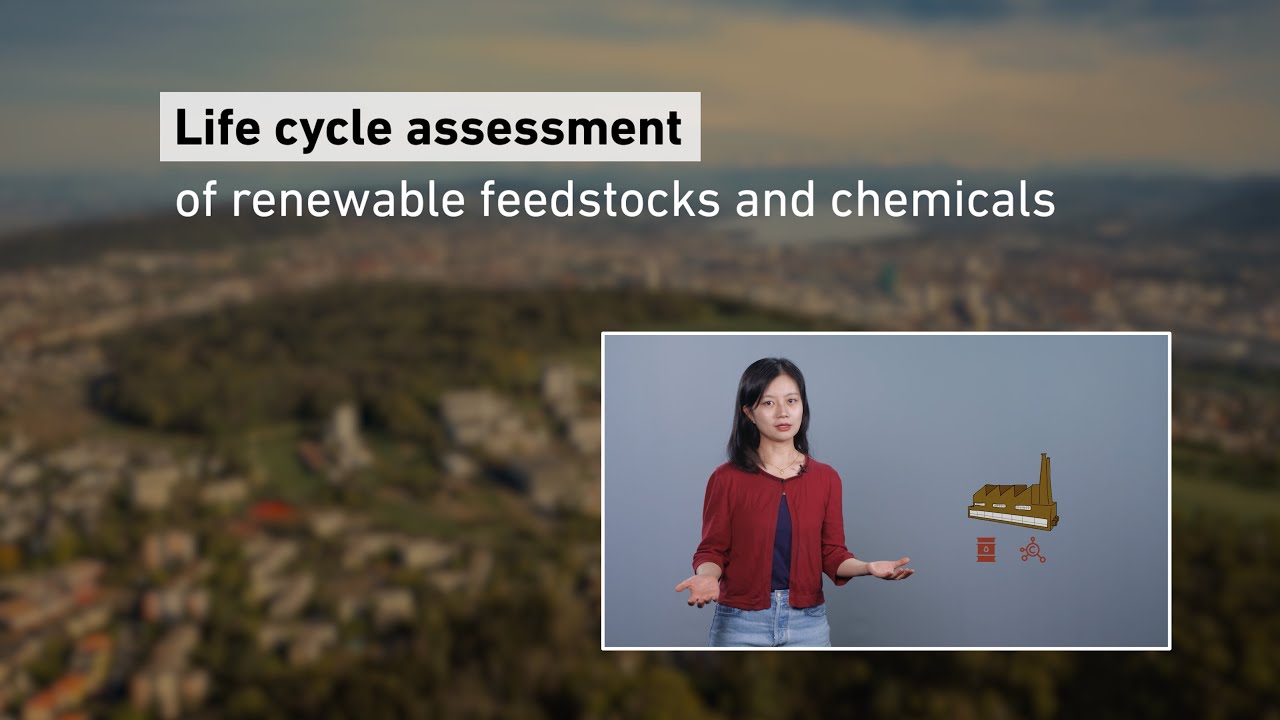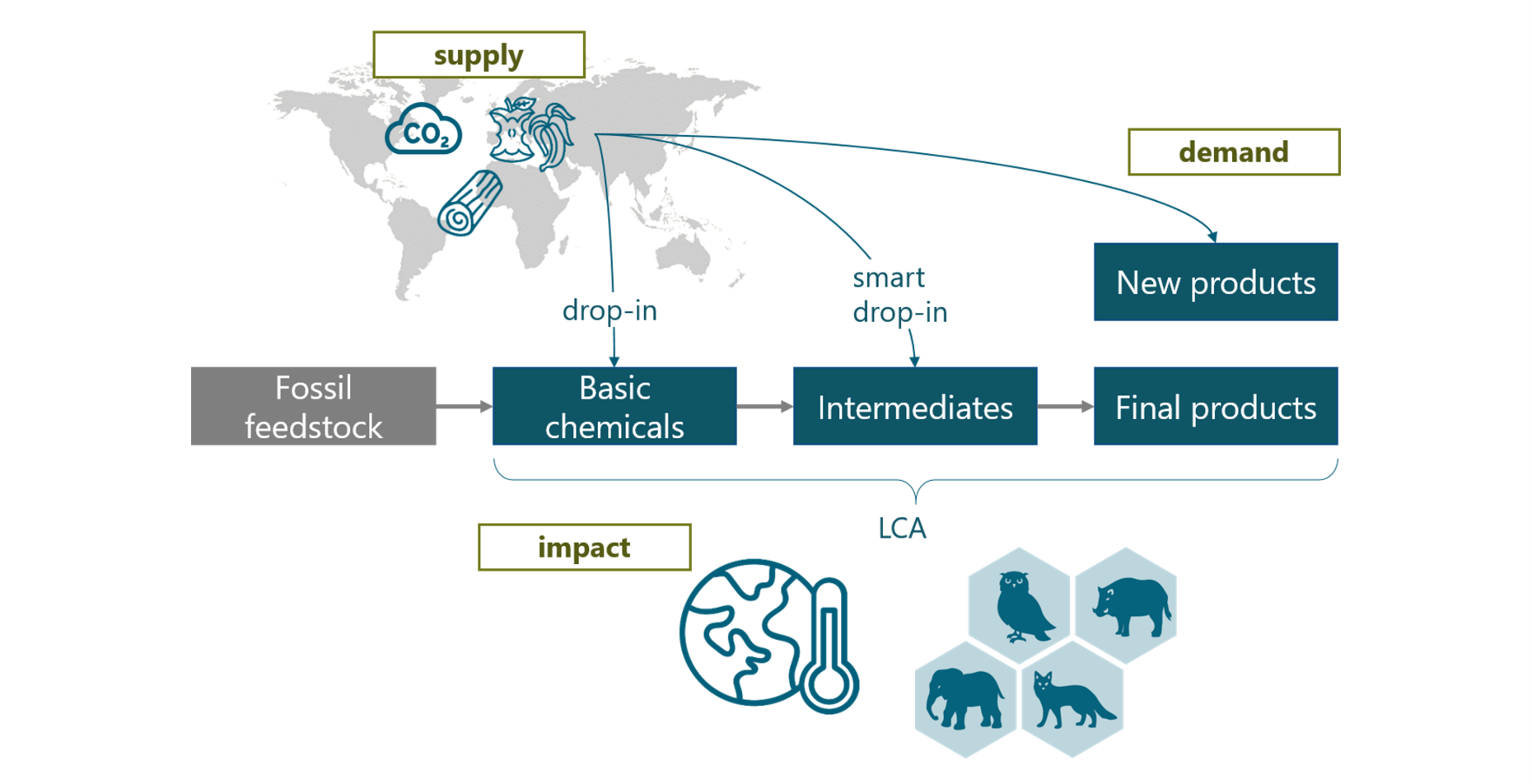NCCR Catalysis sub-project 1: LCA of renewable feedstocks and chemicals

In the short video here above, PhD student Jing Huo gives a brief overview of the project (if the video is not available in your region, please use this link external pagethis linkcall_made).
The utilization of renewable feedstocks such as carbon dioxide (CO2) and biomass is gaining increasing attention in the scientific community and the chemical industry as a possible key instrument for achieving the net-zero greenhouse gas emission target and transitioning towards a sustainable circular chemical economy. However, with ongoing decarbonization of the energy and industrial sectors and increasing dependence on biomass for energy use, the future regional supply-demand balance of CO2 and biomass as chemical feedstocks remains unknown. Furthermore, capture and utilization of renewable feedstocks is not impact-free. For example, retrieving lignin from forests may cause damage to local biodiversity with a strong spatial pattern. Also, energy consumption of chemical production from CO2 is generally higher than taking the conventional fossil-based routes due to high energy barriers between CO2 and the desired chemical products. The goal of this project is to inform the chemical industry and policymakers about possible best strategies for transitioning to renewable feedstocks by providing a holistic comparison of the environmental benefits and trade-offs of chemicals produced from different feedstocks and pathways under different scenarios. It will focus on CO2 and biomass as chemical feedstocks, respectively, including their future regional supply-demand balance and environmental impacts based on the projected sourcing mechanisms. In addition, a case study will be conducted to investigate the optimization potential of upstream supply chain of the chemical manufacturing sites in Europe, with the aim of minimizing total environmental impacts from feedstock sourcing, transportation, and conversion.

Net-zero transition of the global chemical industry with CO2-feedstock by 2050: feasible yet challenging
Jing Huo, Zhanyun Wang, Christopher Oberschelp, Gonzalo Guillén Gosálbez and Stefanie Hellweg
Green Chemistry, vol. 25: no. 1, pp. 415-430, Cambridge: Royal Society of Chemistry, 2022.
external pagehttps://doi.org/10.1039/D2GC03047Kcall_made
